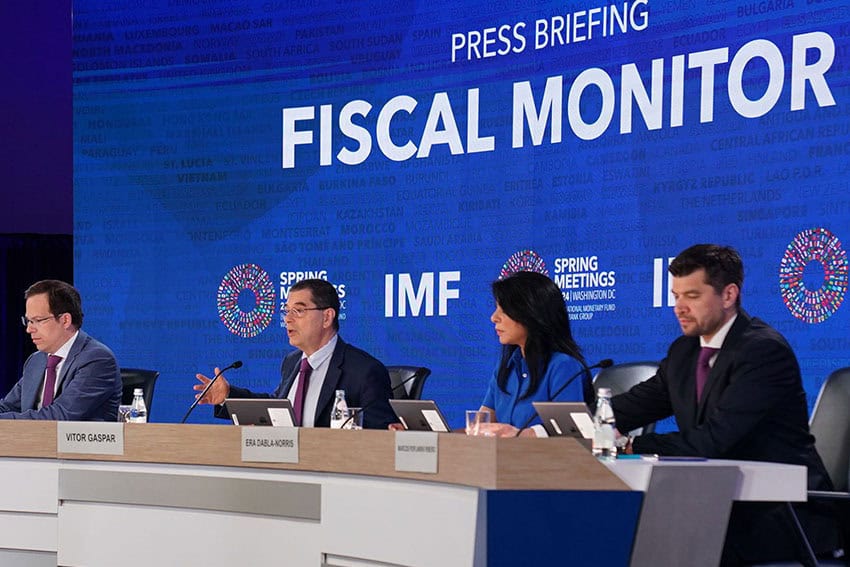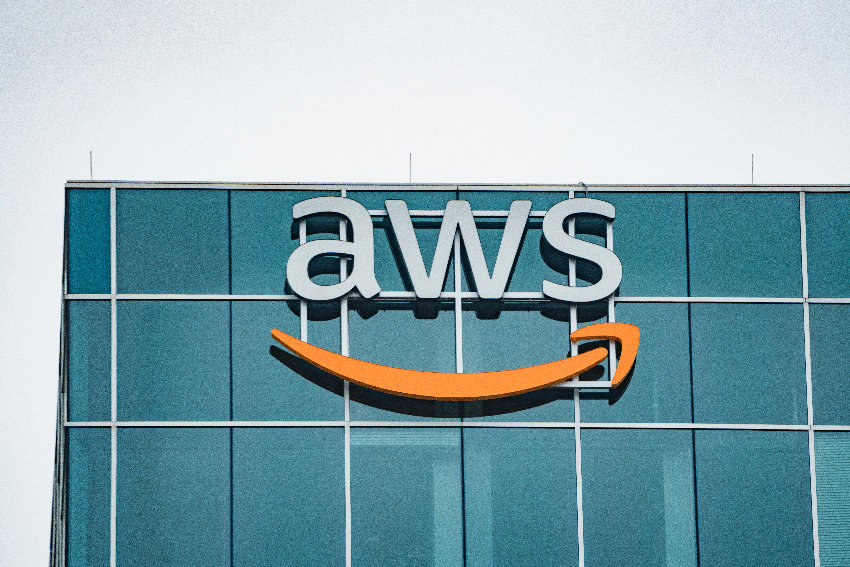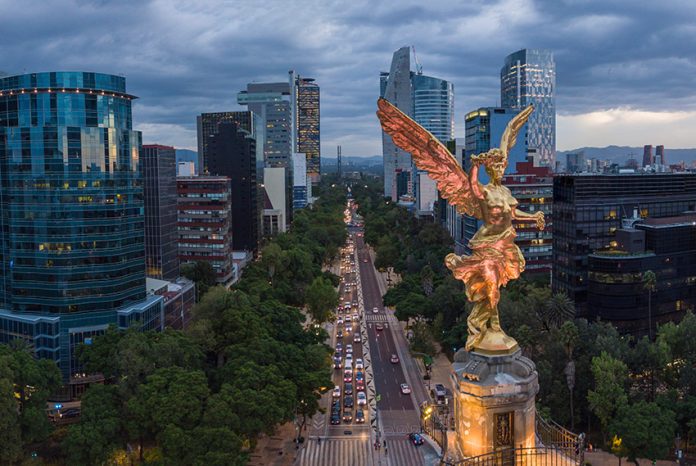The Mexican economy in February grew at its fastest month-over-month rate in more than three years, according to official data published on Monday.
In other good news for the economy, the federal government said Sunday that in the first 3 1/2 months of 2024, foreign companies announced their intention to invest more than US $36 billion in Mexico in coming years.
Economic growth in February
The national statistics agency INEGI reported that the Global Indicator of Economic Activity (IGAE) — a monthly indicator of GDP growth — increased 1.4% in February compared to January.
That was the best month-over-month result since September 2020, when the economy grew 2.7% compared to the previous month.
INEGI also reported that the IGAE increased 2.6% in annual terms in February.

The strong month-over-month result came after a 0.9% contraction in January — the fourth consecutive month that the Mexican economy shrank compared to the previous month.
Data shows that the primary or agriculture sector grew 16.5% in February compared to January, while the tertiary or services sector recorded a 1.2% expansion. The secondary or manufacturing sector contracted 0.1% compared to January.
Compared to a year earlier, the primary sector expanded 5.8% in February, the secondary sector grew 1.5% and the size of the tertiary sector increased 3.2%.
Alfredo Coutiño, Latin America director at Moody’s Analytics, said on the X social media platform that “as expected” the Mexican economy in February began to “be stimulated by the expansionary phase of the political cycle … in anticipation of the commencement of the political campaigns” ahead of the June 2 elections.
“Due to the preparation for the beginning of campaigns, political spending began to flow in the economy, boosting transport, printing, media and wholesale commercial activities and especially construction,” he wrote.
The publication of the economic growth data for February comes six days after the International Monetary Fund revised down its economic growth forecast for Mexico in 2024 to 2.4% from 2.7%, citing “weaker-than-expected” outcomes early in the year.
Gabriela Siller, director of economic analysis at the Mexican bank Banco Base, predicted on X on Monday that annual growth in the first quarter of the year will be 1.84%.

Almost 100 investment announcements so far this year
The Economy Ministry (SE) said Sunday that foreign companies made 93 investment announcements for Mexico between Jan. 1 and April 15. As a result of those announcements, US $36.15 million is expected to flow into the country in the next two or three years, the SE said.
The figure is fractionally higher than Mexico’s foreign direct investment (FDI) total in 2023.
The SE said Sunday that the projects announced so far this year are expected to create 47,702 direct jobs.
The largest single investment announcements in the March 15 to April 15 period — which the Economy Ministry hadn’t previously reported on — were made by Spain’s Tango Solar ($1.17 billion); United States company Sempra Infrastructure ($550 million); and Chinese tire manufacturer Sailun ($427 million).
The top five investment announcements in the Jan. 1 to April 15 period were made by Coca-Cola bottler and convenience store owner FEMSA ($9.96 billion); Amazon Web Services ($4.96 billion); DHL Supply Chain ($4 billion); e-commerce company Mercado Libre ($2.45 billion); and Walmart ($2.13 billion).

The SE said that United States companies made investment announcements totaling $19.47 billion in the period. That figure is equivalent to 54% of the $36.15 billion in announcements so far this year.
German companies (15% of the total) and Argentine companies (12%) were the next biggest investors based on announcements in the Jan. 1 to April 15 period.
The SE also said that 54% of the money announced this year is set to go to the manufacturing sector, while the transport, media and retail industries are slated to get 14% each.
Querétaro, where Amazon Web Services plans to open a cluster of data centers, is set to be the biggest beneficiary of the projects announced so far this year. Almost $5.8 billion is expected to flow into the Bajío region state based on investment announcements in the first 3 1/2 months of the year. That figure is equivalent to 16% of the total investment announced between Jan. 1 and April 15.
México state and Nuevo León are slated to get 13% and 10% of the $36.15 billion total, respectively, making those states the next biggest beneficiaries.
FDI in Mexico is expected to grow in coming years as companies act on their investment announcements and more foreign firms relocate here as part of the growing nearshoring trend.
With reports from El Economista and El Financiero
